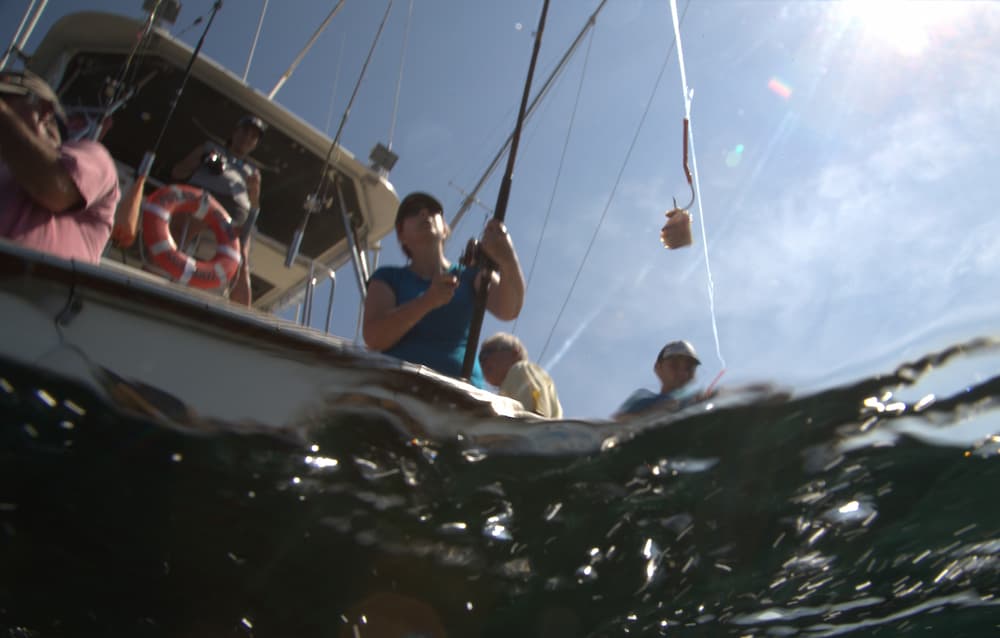
Fishing is an important past and present activity at Stellwagen Bank. There have been commercial fishing boats traveling the waters of what is now the sanctuary for centuries. For any individual who enjoys recreational fishing, the sanctuary offers opportunities to catch a variety of fishes – some with filets that will grace the table, and others that will give viewers an appreciation of the diversity of life in the ocean.
ONMS Recreational Fishing Video
Find out more about NOAA’s role in recreational fishing nationally and in the Greater Atlantic region, including Stellwagen Bank National Marine Sanctuary. Plan your fishing trip before you go, whether on your own boat or through a fishing charter or party boat.
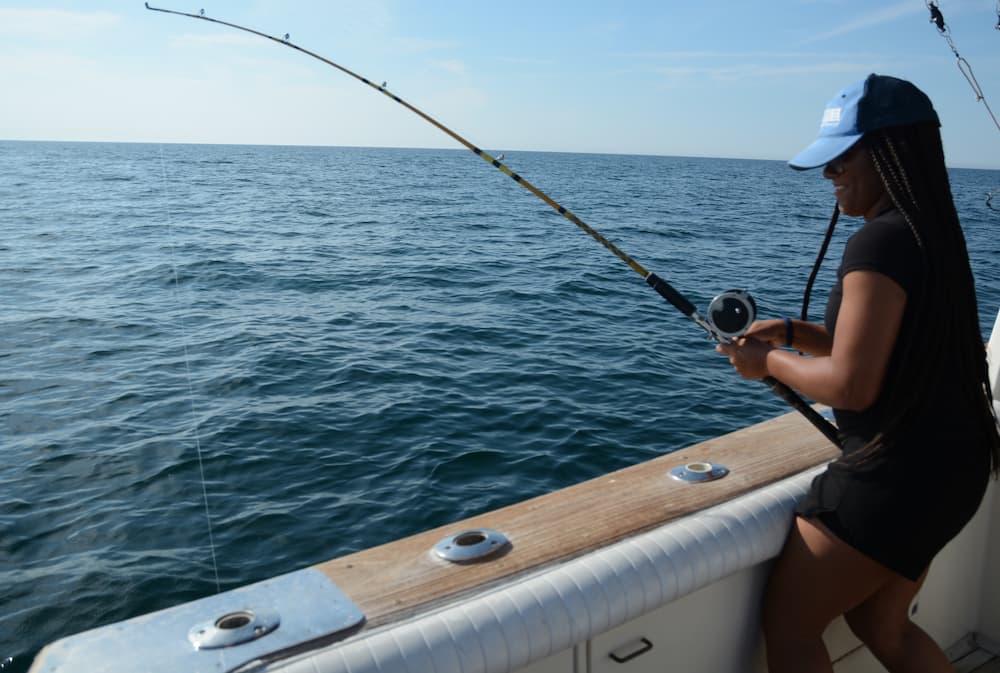
If fishing off a private vessel, make sure each person over the age of 16 holds a Saltwater Fishing License. Most state saltwater licenses qualify. If fishing with a charter (six-pack) or party boat, make sure the company is licensed and meets all safety requirements. As a passenger, you do not need an individual license.
If fishing for tuna, swordfish, or sharks (no white sharks), obtain an Atlantic Highly Migratory Species non-commercial angling permit. This permit has certain restrictions, including gear type and catch.
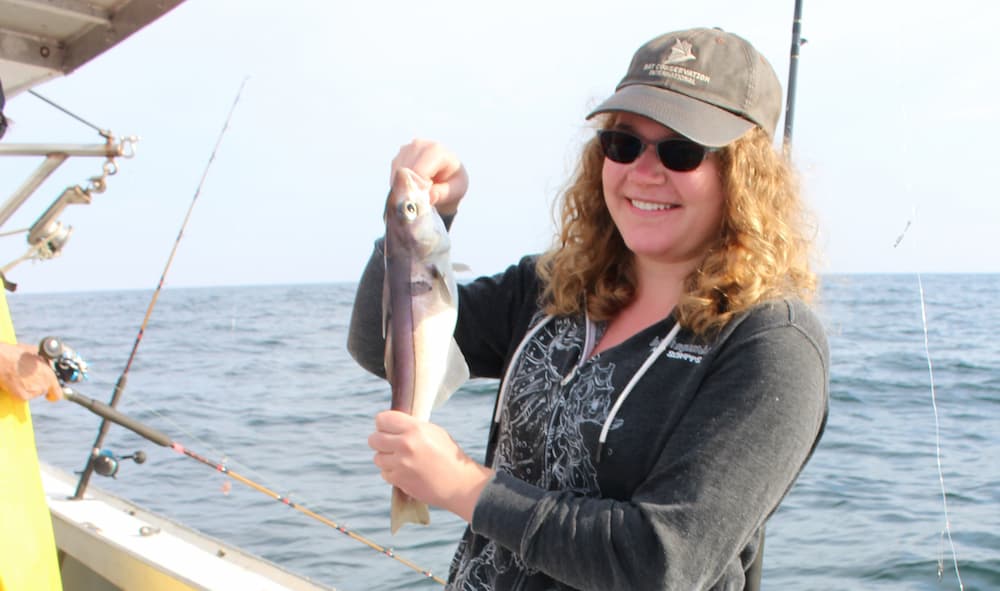
NOAA adjusts fishing regulations to reflect conditions, so they may change at any time. To be safe, check the NOAA Fisheries website for information on seasons, size, possession limits, and other requirements.
The FishRules app for smart devices provides updated saltwater fishing regulations for federal and state waters from Maine to Texas.
While federal law permits the disposal of fish wastes in federal and state waters, MARPOL, the law for the prevention of pollution at sea, spells out what can be disposed of and where, including a ban on the dumping of any plastics anywhere in the ocean. For the safety of marine life and to maintain a healthy sanctuary, it is recommended that all non-organic wastes be transported back to shore for proper disposal.
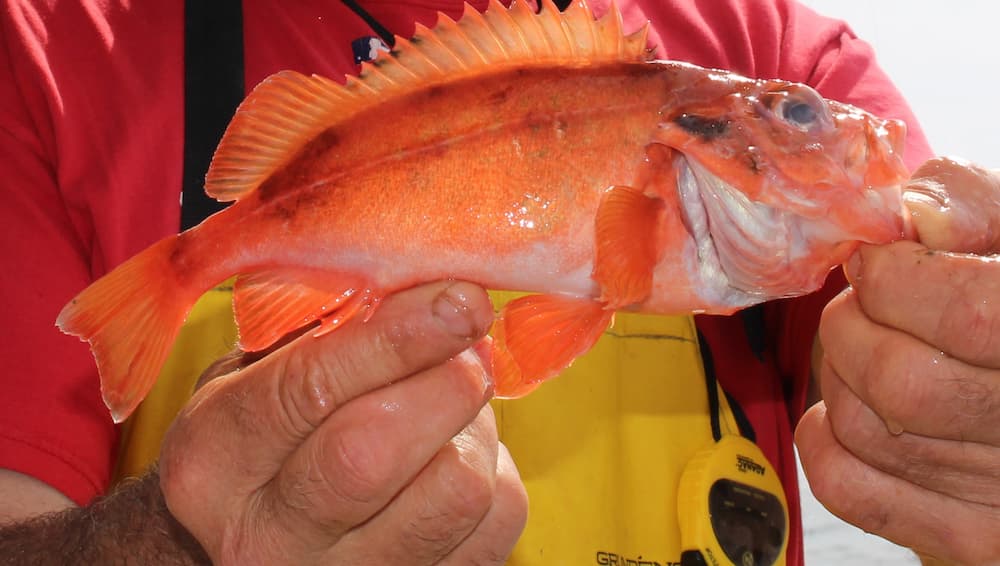
View our gallery of sanctuary fishes
Some of the more popular sanctuary fishes include cod, haddock, hakes, flounders, redfish, and bluefin tuna. NOAA Fisheries provides detailed information, including description, status, population size, and management actions for most of the commonly fished species in the New England Region.
For information about other fish species, consult the locally recognized authority on fish information – Bigelow and Schroeder’s “Fishes of the Gulf of Maine,” a bulletin of the Fish and Wildlife Service, first published in 1953, available via the Internet Archives or from the Gulf of Maine Research Institute. The book was updated in 2002 and can be purchased commercially.
Another excellent free resource book on many aspects of recreational fishing, entitled "Massachusetts Recreational Saltwater Fishing Guide," can be obtained from the Massachusetts Division of Marine Fisheries. It is updated annually.
For information about sustainable seafood, defined as species caught in a way to conserve stocks, along with dietary data and recipes, go to NOAA’s FishWatch.
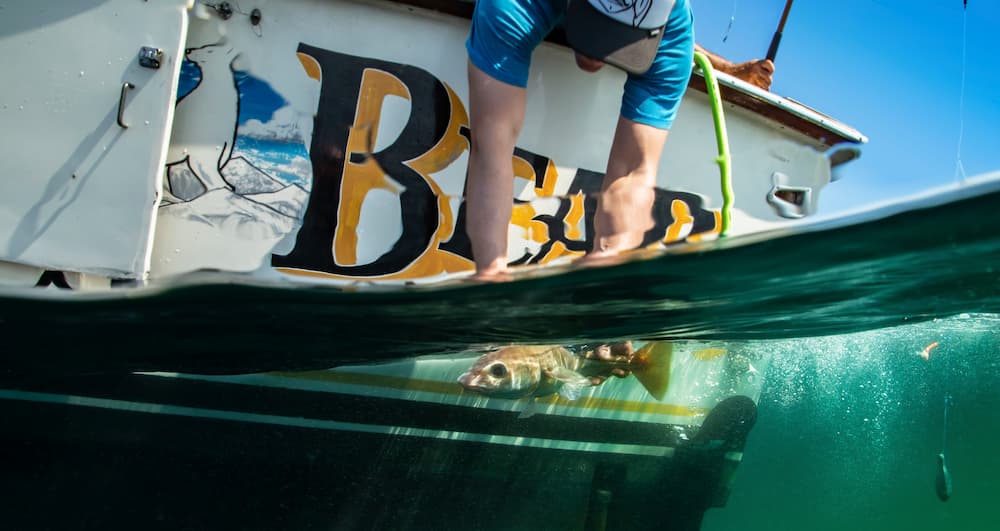
Always follow best practices for recreational fishing, such as catch-and-release fishing, properly disposing of waste, and other practices to protect fisheries resources.
Practice safe boating on your trip out to your fishing site. Review our Boating and Air and Sea Conditions sections.